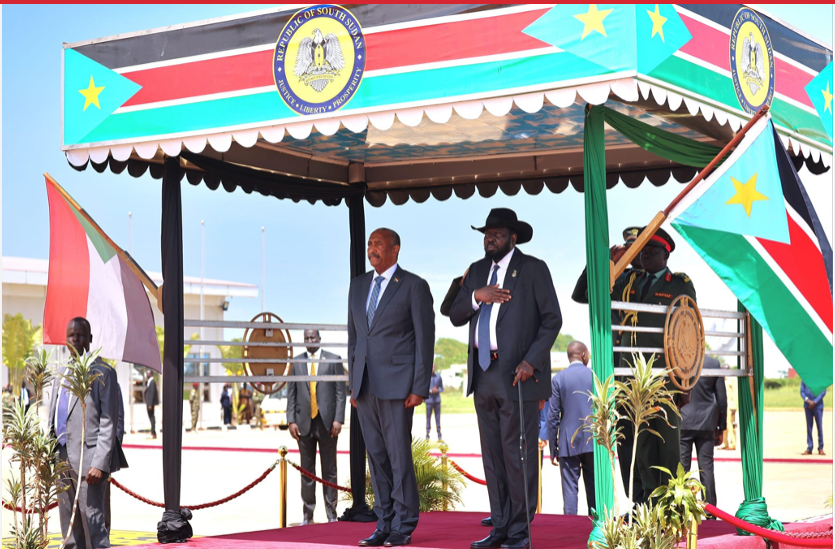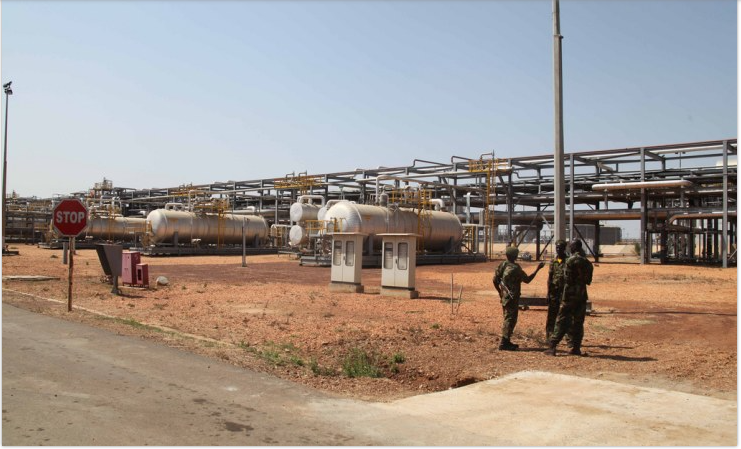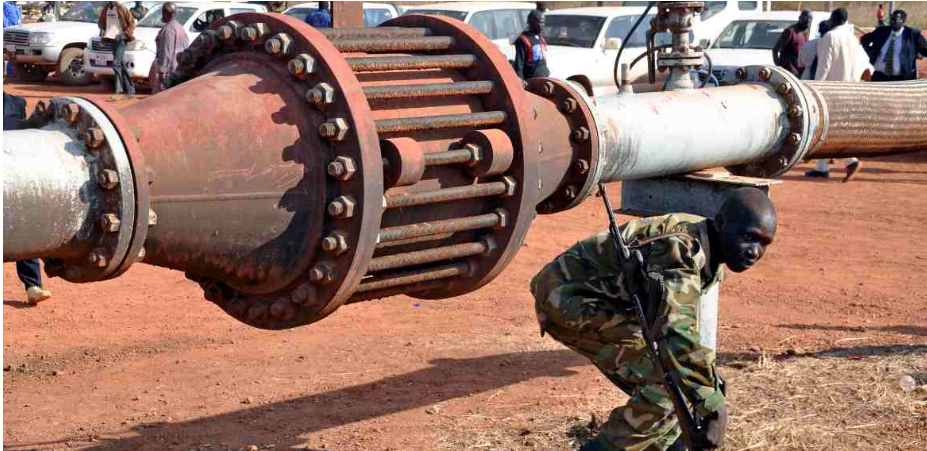 South Sudan, one of the world’s youngest nations, has been grappling with mounting obstacles in transporting its oil through neighboring Sudan, a crucial lifeline for the country’s economy. The landlocked nation, which gained independence from Sudan in 2011 after decades of civil war, heavily relies on Sudan’s pipelines to export its oil. This arrangement has long been a source of both cooperation and tension between the two nations, and recent developments have added new layers of complexity to an already fragile partnership.
South Sudan, one of the world’s youngest nations, has been grappling with mounting obstacles in transporting its oil through neighboring Sudan, a crucial lifeline for the country’s economy. The landlocked nation, which gained independence from Sudan in 2011 after decades of civil war, heavily relies on Sudan’s pipelines to export its oil. This arrangement has long been a source of both cooperation and tension between the two nations, and recent developments have added new layers of complexity to an already fragile partnership.
When South Sudan seceded from Sudan, it inherited about 75% of the oil reserves. However, all the pipelines, refineries, and export terminals remained in Sudan. As a result, South Sudan was forced into a transit agreement, wherein it pays Sudan to use its oil infrastructure to transport crude to the Red Sea for export. Oil revenues form a backbone of South Sudan’s economy, accounting for nearly 98% of the government’s budget.
This delicate economic interdependence has worked under the cloud of political mistrust and occasional armed clashes between the two countries. Both governments, plagued by internal political instability and economic challenges, have had to navigate a web of negotiations and recalibrations to keep the oil flowing.
 However, the escalating civil conflict in Sudan is now casting a dark shadow over this arrangement. Since April 2023, Sudan has been embroiled in violent clashes between the Sudanese Armed Forces and the paramilitary Rapid Support Forces (RSF). This has led to significant disruptions in key regions and threatens the safety of vital oil infrastructure that South Sudan depends on for its exports.
However, the escalating civil conflict in Sudan is now casting a dark shadow over this arrangement. Since April 2023, Sudan has been embroiled in violent clashes between the Sudanese Armed Forces and the paramilitary Rapid Support Forces (RSF). This has led to significant disruptions in key regions and threatens the safety of vital oil infrastructure that South Sudan depends on for its exports.
Sudan’s deteriorating security environment has led to interruptions in oil flow, delaying shipments, and increasing risks of sabotage. For South Sudan, this is particularly worrying as it stands to lose millions of dollars in oil revenue for each day of delay. The fighting has spread to areas near key pipelines, putting the security of oil facilities in jeopardy. Oil workers, particularly those from South Sudan, have also faced increasing danger, with many being evacuated for safety.
The suspension or reduction in oil exports has a ripple effect on South Sudan’s economy. With oil revenue forming almost the entirety of the government’s income, any interruptions can push the fragile state deeper into economic distress. South Sudan has already been struggling with post-civil war recovery, grappling with poverty, food insecurity, and underdeveloped infrastructure.
Inflation, exacerbated by the loss of oil revenue, is pushing the prices of essential goods higher. The local currency, the South Sudanese pound, has been devaluing further, straining the livelihoods of ordinary citizens. Additionally, South Sudan’s debt burden continues to grow, with the nation finding it increasingly difficult to honor its financial obligations.
Given the economic importance of this oil transit deal, South Sudanese leaders are trying to leverage international support to find a resolution. Diplomacy with Sudan is ongoing, but the volatile situation in Khartoum makes negotiations unpredictable. Additionally, both countries have sought external mediation from the African Union (AU) and the Intergovernmental Authority on Development (IGAD), but a lack of consensus on political resolutions in Sudan continues to be a stumbling block.
Moreover, international actors like China, which has significant investments in South Sudan’s oil fields, are also becoming increasingly concerned. China’s involvement in the oil sector means that it has vested interests in maintaining stability in both countries to safeguard its investments. However, China’s efforts to mediate have yet to bear tangible results.
The recurring challenges in transporting oil through Sudan have prompted South Sudanese officials to explore alternative routes to get their oil to market. One potential solution involves constructing new pipelines that bypass Sudan entirely, possibly extending through Kenya or Ethiopia.
A proposed pipeline through Kenya’s Lamu Port has long been discussed as an alternative. However, the high costs and logistical challenges of such a project, combined with ongoing regional insecurity, have slowed progress. It would also require massive investment and international backing, which is not easy to secure in the current global economic climate.
 Nonetheless, South Sudan recognizes the strategic importance of diversifying its oil export routes. Depending solely on Sudan, which remains unstable, leaves the young country vulnerable to unpredictable disruptions in oil flow, and South Sudan’s leaders are keen to prevent future crises of this nature.
Nonetheless, South Sudan recognizes the strategic importance of diversifying its oil export routes. Depending solely on Sudan, which remains unstable, leaves the young country vulnerable to unpredictable disruptions in oil flow, and South Sudan’s leaders are keen to prevent future crises of this nature.
For South Sudan, oil remains a double-edged sword: it is the country’s primary economic asset but also its biggest vulnerability. As the situation in Sudan continues to deteriorate, South Sudan’s leaders are faced with tough choices. The future of the oil deal hangs in the balance, with no clear solution in sight.
The international community, particularly those with economic and geopolitical interests in the region, will play a critical role in what comes next. Mediation efforts between Sudanese warring factions and support for long-term infrastructure projects may offer a glimmer of hope. However, for the time being, South Sudan is forced to navigate a precarious path, where its economic future hangs on the resolution of a conflict beyond its borders.
The fate of South Sudan’s oil industry serves as a stark reminder of the broader geopolitical and economic challenges that continue to shape the future of the Horn of Africa. As instability continues, the stakes for South Sudan, and the region at large, remain high.
Ennywealth


